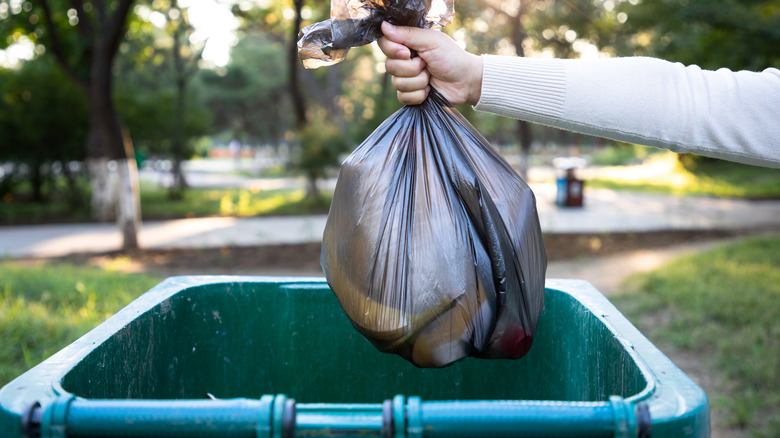What A 'Class One' Recall Means And When To Throw Food Out
Foodborne illness should be taken seriously — and if you feel like it's rare, just look at the statistics. According to the Centers for Disease Control and Prevention, an estimated 48 million people fall sick from something they consumed each year. A recall occurs when there is enough potential for harm that a food product cannot be sold, and Class One is the most severe type.
According to the Food and Drug Administration (FDA), a Class One recall means there is a "reasonable probability that the use of or exposure to a violative product will cause serious adverse health consequences or death." However, that doesn't always mean there are deaths associated with the product. For example, a May 2024 recall of several Palmer Candy confections due to salmonella was upgraded by the FDA to Class One status on August 6, but there are no reports of illnesses at the time of writing. The same was true with Trader Joe's cashews recalled due to salmonella in March 2024, but Trader Joe's basil did cause a non-fatal salmonella outbreak in April 2024.
Class Two recalls apply where there is a "remote" chance of illness, and any symptoms that may occur are "temporary or medically reversible." Situations where medical consequences are unlikely are designated as Class Three, and a "market withdrawal" happens "when a product has a minor violation that would not be subject to FDA legal action". The United States Department of Agriculture (USDA) follows the same guidelines with their recalls.
When to throw away recalled food
You might wonder: Don't germs get killed off when you cook food? Trace amounts of pathogens like salmonella and E. coli do show up on meats and vegetables, and proper cooking and preparation can greatly reduce or eliminate them so you don't get sick. However, once a recall has been issued, preparing food a certain way won't help and there is no reason to risk it. You should never consume anything that has been recalled.
Class One recalls due to undisclosed allergens are slightly different from recalls due to pathogens or foreign objects. If someone with a food allergy unknowingly consumes a dangerous ingredient because it was not listed on the label, it could lead to severe reactions or death. For example, there was a recall of Cava's spicy hummus, which contained sesame but did not disclose that on the packaging. In such cases, it is still best to get rid of said item, so that there is no chance of anyone in your household or visitors accidentally consuming something they are allergic to.
Whenever a recall is issued, companies and regulating bodies provide information including package details, best-by dates, lot numbers, and photographs, so that you can easily identify if you purchased from an affected batch. You can almost always return the item to the place you purchased it or contact the supplier directly for a refund. That way, at least you are not wasting money, even if the food is thrown out.


